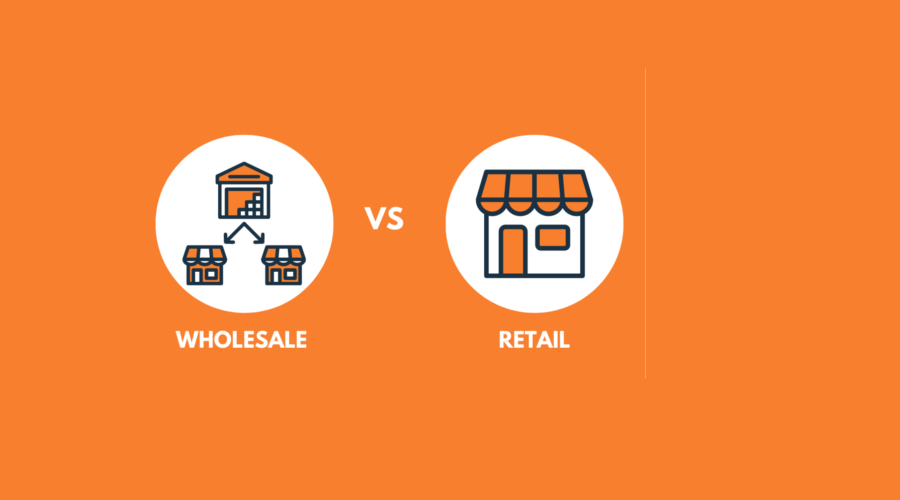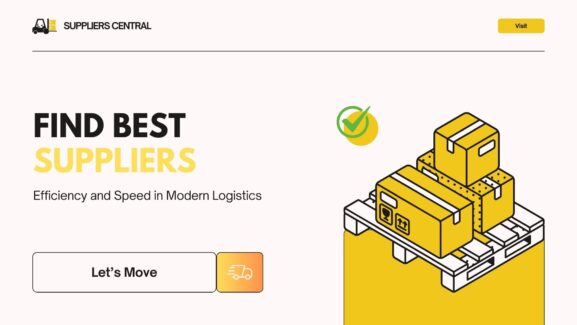Wholesale vs Retail
When deciding how to run their business, new business owners frequently argue between. Since both strategies entail selling things, they may appear similar at first, but their methods and target markets differ greatly. Knowing these models is essential to your long-term success if you’re thinking of founding a product-based firm or an online store. This blog post will define wholesale and retail, highlight the main distinctions between the two, and assist you in determining which course best suits your objectives, financial constraints, and company strategy for 2025.
What is Wholesale?
Selling products to other companies in bulk, typically at a discount, is referred to as wholesale. At a higher price, the buyer—usually a retailer—then resells those goods to individual customers. The business-to-business (B2B) sales model includes wholesale. For instance, if you are a garment manufacturer making 1,000 t-shirts, you might offer them at a discount to ten different retail stores in 100-shirt batches. The shirts will then be sold to clients separately by those retail establishments, typically at twice the price.
Companies that use a wholesale business model typically deal with large quantities of product, need warehouse space or a logistics partner, and take advantage of economies of scale. The objective is to move huge quantities of goods, frequently with a high total revenue but a smaller profit margin per item.
What is Retail?
Retail is the direct sale of products, usually in modest amounts, to the final customer. The business-to-consumer (B2C) model encompasses it. Retailers buy goods from producers or wholesalers and resell them to consumers at a premium. Retailers have three options for selling: physical stores, online marketplaces like Amazon, eBay, and Etsy, or e-commerce websites. Selling a product is only one aspect of the retail model; other aspects include branding, packaging, customer service, marketing, and occasionally customisation.
You are doing a retail transaction when you purchase shoes online or in a nearby boutique. In order to pay expenses and turn a profit, that store most likely purchased the shoes at wholesale prices and then applied a markup.
Key Differences: Wholesale vs Retail
Although product sales are a part of both business models, wholesale and retail differ greatly in terms of operations, client engagement, and business structure.
Customer Type:
When you sell wholesale, your clients are other companies, usually distributors, retailers, or even other wholesalers. Individual clients who buy products for their own use make up your retail clientele.
Order Volume:
Wholesale entails placing orders in bulk. Retail usually deals with clients’ one-time, small-volume transactions.
Pricing:
Because buyers buy in volume, wholesale prices are much lower per unit. Because retail prices include marketing, profit margin, wholesale costs, and other overheads, they are higher.
Profit Margins:
Higher profit margins per unit sold are frequently enjoyed by retailers. Wholesalers earn from high order volumes but have lower margins per item.
Marketing Approach:
Wholesalers prioritize long-term agreements and commercial partnerships. Retailers must make significant investments in branding, marketing, and face-to-face interaction with customers.
Business Complexity:
Supply chain coordination, inventory management systems, and logistics are frequently more complicated for wholesale enterprises. Retail companies need to put in more work on customer service, refunds, and branding even though their operations are simpler.
Pros and Cons of Wholesale
✅ Pros:
Stable revenue through bulk orders
Lower marketing costs (target fewer buyers)
Opportunity to build long-term B2B relationships
❌ Cons:
Lower margins
High inventory requirements
Difficult entry for small businesses without capital
Pros and Cons of Retail
✅ Pros:
Higher profit margins per item
control over branding and customer experience
Easier entry via e-commerce platforms
❌ Cons:
High competition
More marketing and operational work
Need to manage customer support and returns
Which Model is Better for You? Wholesale vs Retail
The choice between wholesale and retail actually depends on your company’s objectives.
Selling in bulk to retailers could be your route to rapid growth if you’re a producer, manufacturer, or have access to a lot of merchandise. Businesses that desire a steady volume and fewer, higher-value clients will find it particularly ideal.
However, retail offers you complete control over the customer journey if you’re interested in developing a brand, engaging with customers directly, and enjoying marketing and e-commerce. You may develop a strong web presence, test products, and foster customer loyalty.
Many prosperous companies are combining the two approaches in 2025. For instance, a clothing company may provide wholesale to boutiques and retail to customers directly through their website.
Conclusion:
Selecting the best company strategy requires an understanding of wholesale vs retail. Both routes present unique benefits and difficulties. Whereas retail is focused on greater margins and customer connections, wholesale is more concerned with volume and long-term partnerships with other companies.
Platforms like Supplier Central can help you along the way, regardless of whether you choose to begin as a wholesaler, retailer, or a combination of the two. Finding suppliers, scaling operations, and succeeding in either model are made simpler by our ability to link buyers and sellers throughout the wholesale sector.



